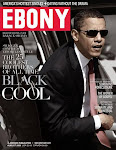Monday, July 28, 2008
SUSPECT: WHERE IS A SOUTHWESTERN FAMILY GETTING $20 MILLION IN DAMAGED CASH?
Posted by THE fly GIRL at 10:52 AMWASHINGTON - The businessman arrived at the Treasury Department carrying a suitcase stuffed with about $5.2 million. The bills were decomposing, nearly unrecognizable, and he asked to swap them for a cashier's check. He said the money came from Mexico.
Money like this normally arrives in an armored truck or insured shipping container after a bank burns or a vault floods. It doesn't just show up at the visitor's entrance on a Tuesday morning. But the banking habits of Franz Felhaber had stopped making sense to the government long ago.
For the past few years, authorities say, he and his family have popped in and out of U.S. banks, looking to change about $20 million in buried treasure for clean cash.
The money is always the same — decaying $100 bills from the 1970s and 1980s.
It's the story that keeps changing: 
_It was an inheritance.
_Somebody dug up a tree and there it was.
_It was found in a suitcase buried in an alfalfa field.
_A relative found a treasure map.
No matter where it came from or who found it, that buried treasure stands to make someone rich.
It could also send someone to jail.
___
Felhaber is a customs broker, a middleman.
His company, F.C. Felhaber & Co., is just minutes away from the bridge between El Paso, Texas, and Ciudad Juarez, Mexico. Tens of billions of dollars of Mexican goods cross that bridge each year, aided by people such as Felhaber who navigate the customs bureaucracy.
Customs brokers don't own the stuff that comes into the United States. They just make sure it gets here.
So it is with the $20 million. Felhaber says the money is not his. A Mexican relative, Francisco Javier Ramos Saenz-Pardo, merely sought help exchanging money that had been buried for decades, Felhaber says.
"To be very clear on this matter: In the beginning, I was not told what it was," Felhaber said in one of several telephone interviews with The Associated Press.
Money petrifies after sitting underground that long and Felhaber said it looked like a brick of adobe. The Treasury will exchange even badly damaged money, but Felhaber said Saenz-Pardo did not want to handle the process himself.
"Imagine a Mexican family bringing money that is damaged and the government calling it a drug deal," Felhaber said.
If the goal were to avoid unwarranted attention, he went about it all wrong. Rather than making a simple — albeit large — exchange at the Treasury, Felhaber allegedly began trying to exchange smaller amounts at El Paso-area banks, raising suspicion every time.
The first stop was the Federal Reserve Bank in El Paso, where authorities say Felhaber appeared with an uncle, Jose, and an aunt, Esther. In her purse, Esther carried $120,000. She told bank officials there were millions more, discovered while digging to expand a building in Juarez, according to U.S. court records filed by U.S. Immigration and Customs Enforcement.
Banks normally refer such requests to the Bureau of Engraving and Printing, an arm of the Treasury. But employees worried that, with so much cash, the three might be robbed on their way home. So, the bank accepted the money and wired $120,000 to an account in his uncle's name, Jose Carrillo-Valles, according to a government affidavit.
Felhaber was back at it again weeks later, this time at a Bank of America branch. Customs officials say he unsuccessfully tried to persuade a bank vice president to dispatch an armored truck to the Mexican border to pick up millions of dollars.
Felhaber denies that conversation took place. But he is tough to pin down on details. At times he seems specific on a point ("There is a $20 million inheritance,") only to contradict himself minutes later, saying the amount is "nowhere near that" and he has no idea where the money came from.
Soon after the Bank of America visit, a man bearing a striking resemblance to Felhaber walked into a Bank of the West branch. This time, however, authorities say the customer identified himself as Ken Motley and said he discovered millions while excavating a tree in Chihuahua, Mexico.
Bank employees refused to exchange any money, despite two follow-up phone calls — once with a Spanish accent, once without — try to set up an exchange.
The mysterious Ken Motley also appeared at the First National Bank, telling employees that a friend had discovered $20 million buried in an alfalfa field, investigators say.
Felhaber says he is not Ken Motley.
Customs investigators say a Bank of the West employee identified Felhaber's picture as that of Ken Motley.
"That's an absolute lie," Felhaber said. "That would be a horrendous miscarriage of justice."
It's unclear which transaction caught investigators' attention. Most of the tens of thousands of exchanges of mutilated money each year are routine. Natural disasters create a lot of inquiries. Children of the Depression have kept money out of banks, only to see it eaten by rodents in their attics or destroyed in fires. A surprising number of people accidentally shred greeting cards with money inside.
But authorities say there are warning signs that trigger investigations. Making a series of small exchanges is one. Bringing mutilated money from abroad is another.
"That is one of the things we are extra concerned about: This process being used to launder money from illegal activities," said Leonard R. Olijar, the chief financial officer of the Bureau of Engraving and Printing. "That's one of our factors that we use to make a case suspicious."
Immigration and Customs Enforcement agents questioned Felhaber in October 2005. According to a government summary of that interview, Felhaber said he believed the money was the result of a 1970s Mexican land deal. The money was buried in a coffin, he said, until Saenz-Pardo — the relative who brought him the money in the first place — discovered a map leading him to the buried treasure.
Felhaber said he didn't want to do anything illegal and was merely getting a cut of whatever he exchanged.
He now says he was mistaken in his interviews with investigators.
"I told them, 'I suspect this is where it's from but I didn't know,'" he said. "They take you to your word like you're supposed to remember every single thing every single time."
For the rest of this story CLICK HERE
Yahoo!
Labels: News












0 comments:
Post a Comment